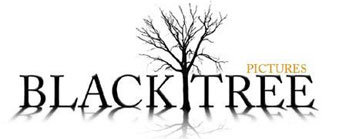
Brendan mk Uegama
Basic Member-
Posts
16 -
Joined
-
Last visited
Profile Information
-
Occupation
Cinematographer
-
I just put up my new demo reel on my website and would love to get some feedback. Please let me know your positive and negative comments. Thanks! www.blacktreepictures.com Brendan
-
I just cut my new reel and was hoping to get some feedback. Positive and negative. Let me know! www.blacktreepictures.com Thanks!
-
Inspirational Cinematographers.
Brendan mk Uegama replied to Matthew Buick's topic in Cinematographers
I'd say Robert Richardson is on top of my list right now. The work he did on Snow Falling On Cedars was amazing to me and The Aviator, Bringing Out The Dead and the Good Shepherd were great too. Vittorio Storaro, Vilmos Zsigmond, Jack Green and Conrad L. Hall are also my favorite DOP's. At the same time, any DOP who works and creates new images are inspirational, no matter what level. I love talking with other cinematographers about their favorite films and shots and the projects they shoot. Everyone who shoots because they love to inspires me to keep doing what I'm doing and working towards. -
camera rentals on vancouver.
Brendan mk Uegama replied to Daniel Carruthers's topic in Cine Marketplace
Clairmont Cameras and Panavision in Vancouver. No idea whats on the island. If you end up shooting Super16mm...I can help with that too. -
Whats the price?
-
Tony Kay directed and shot American History X.
-
I'm shooting a projet on 7218 soon with close 65-70% Day scenes and the remainder night scenes. I was talking with another DP and he was saying I shouldn't put an 85 filter on to correct for the daylight and should fix it in post, since were going digital. Slapping on the filter doesn't take up more time on the day so why not correct there? It's not like we loose a lot of stop. I've always like fixing as much IN camera as possible before going to digital. Any suggestions, thoughts or comments on why it's an avantage to fix it in post?
-
Develop Super8 500T near Vancouver?
Brendan mk Uegama replied to Brendan mk Uegama's topic in Super-8
Nice. Thanks I'll check them out. -
I just got my hands on some Super 8 500T film (7218) and have heard I need to send it over seas to get developed...is this true? I heard Northwest in Burnaby only develops 200T film and nothing else. Does anyone know where the closest place to Vancouver is to get Super 8 developed?
-
What's the worst movie you've ever seen?
Brendan mk Uegama replied to James Steven Beverly's topic in Off Topic
Little Nicky, My Life Without Me, Closer and the Blair Witch Project...But The Stupid Witch Project was damn funny. -
I'm shooting a short project soon on Super 16. Were making a film noir picture, but I'm deciding what to shoot for...Black and White or Colour. Of course the first thing to come to mind is shooting a film noir in B&W, but I recently watched Road to Perdition by Conrad Hall and that is beautiful film noir in colour. Our film is going to be submitted to the festivals, and I'm not sure if shooting one over the other has any advantage. Would shooting in colour be any more attractive to them? Plus, what are some of your favorite film noir pictures?
-
I agree with Michael Schrengohst. If possible, avoid shooting interlaced if transfering to film. You will have less problems. Another question to ask yourself is where is this going? Are you releasing it to video? Is it going to be screened on 40ft screens? It looks to me that on your breakdown of Pros and Cons, you only have pros for shooting HDV and cons for shooting film. Don't forget about the latitude you'll gain shooting film, the textures you'll have, the image quality and the endless possibilities towards your look. I'm currently in pre-production of a documentary I will be shooting in some dodgy areas in South America. I'm bringing the Panasonic HVX 200 and an old Bolex Rex 5 for scenic shots and whatever else possible. I think the Bolex is going to help a lot. If you do go the digital route, I would suggest trying to bring a Bolex or something as well. You'll notice the difference while in post. Just make sure everything fits into a discreet looking backpack.
-
I have just received a couple thousand feet of kodak 5218. I am shooting a low budget short film soon and was thinking about using that, as well as some 16mm stock to finish the project (16mm instead of 35mm because of budget). If I do this, would you recommend using 7218 to try and match although the grain will be noticeably different? Or could I shoot on a slower 16mm stock to match grain and try to match the looks between the two with lighting and development?
-
I have been thinking about buying a camera that shoots Super16mm. I'm not yet sure on what type. But to own one is not only an expensive purchase, but the maintenance can be very costly. Is buying a camera going to be of a high advantage to me? Because in general, once you're hired onto a production, the camera is usually rented from a camera house. I feel like it would be a good idea because I would learn more about the camera than I would if I didn't own one. For those of you who own a 16mm or 35mm camera, is it a large asset? Do you shoot more because of it? Do you feel it makes you a better cinematographer in some ways? Any opinions would be helpful. Thanks.


